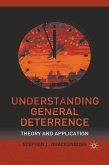Why did IMF conditionality prove to be successful in Bulgaria only after 1997, although it was present before? Drawing on IMF documents, internal governmental reports and an inter-temporal analysis of three phases of relationship between the IMF and the Bulgarian government, it is argued in this book that the success of IMF conditions requires that conditionality meets linkage. The interests of the Bulgarian policy makers and the IMF coincided after 1997 when the government announced its primary goal - EU membership. Thus, the EU served as an outside anchor , which relieved both, in addition to IMF, financial and political constraints to economic reform.
Bitte wählen Sie Ihr Anliegen aus.
Rechnungen
Retourenschein anfordern
Bestellstatus
Storno








